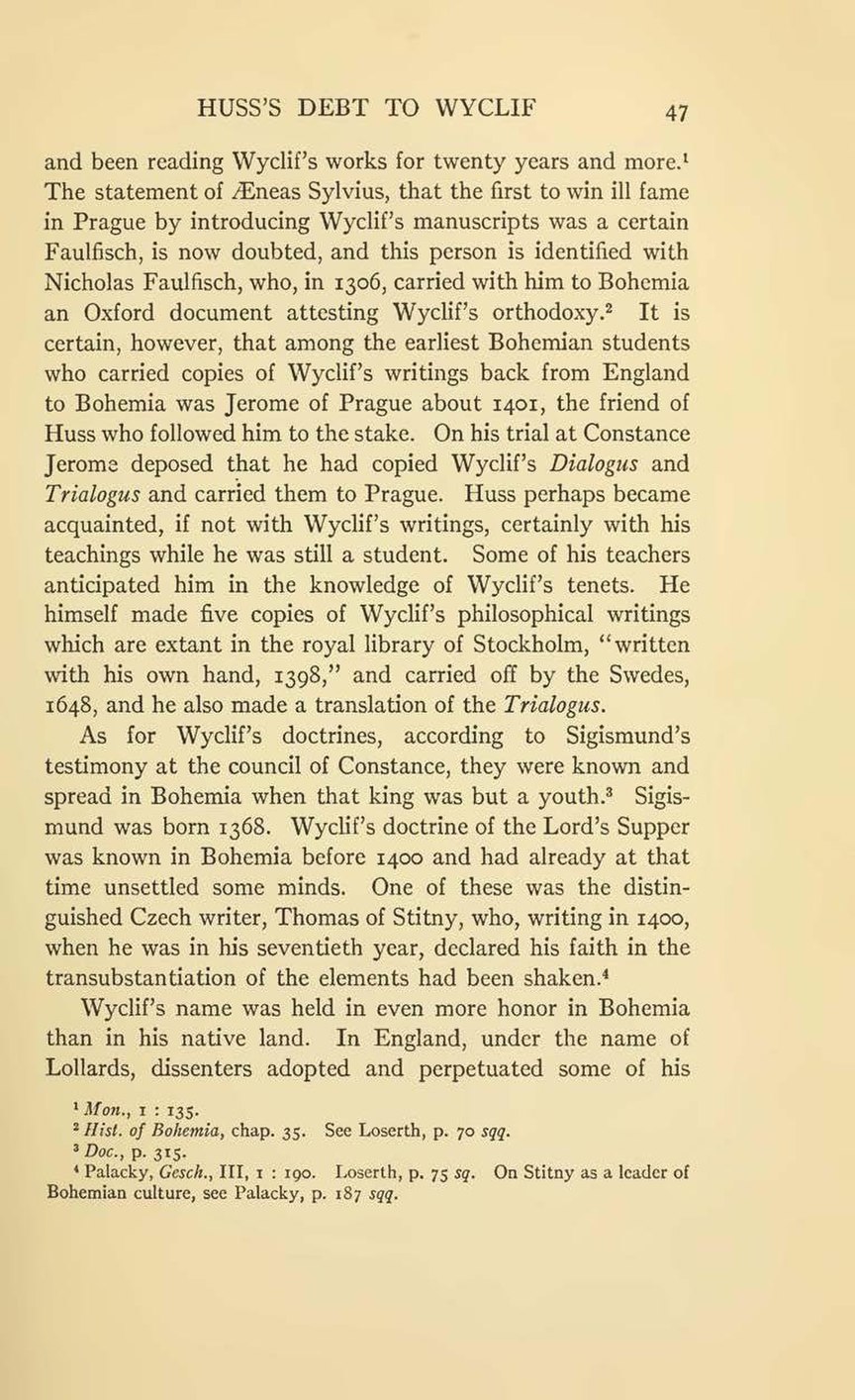and been reading Wyclif’s works for twenty years and more.[1] The statement of Æneas Sylvius, that the first to win ill fame in Prague by introducing Wyclif’s manuscripts was a certain Faulfisch, is now doubted, and this person is identified with Nicholas Faulfisch, who, in 1306, carried with him to Bohemia an Oxford document attesting Wyclif’s orthodoxy.[2] It is certain, however, that among the earliest Bohemian students who carried copies of Wyclif’s writings back from England to Bohemia was Jerome of Prague about 1401, the friend of Huss who followed him to the stake. On his trial at Constance Jerome deposed that he had copied Wyclif’s Dialogus and Trialogus and carried them to Prague. Huss perhaps became acquainted, if not with Wyclif’s writings, certainly with his teachings while he was still a student. Some of his teachers anticipated him in the knowledge of Wyclif’s tenets. He himself made five copies of Wyclif’s philosophical writings which are extant in the royal library of Stockholm, “written with his own hand, 1398,” and carried off by the Swedes, 1648, and he also made a translation of the Trialogus.
As for Wyclif’s doctrines, according to Sigismund’s testimony at the council of Constance, they were known and spread in Bohemia when that king was but a youth.[3] Sigismund was born 1368. Wyclif’s doctrine of the Lord’s Supper was known in Bohemia before 1400 and had already at that time unsettled some minds. One of these was the distinguished Czech writer, Thomas of Stitny, who, writing in 1400, when he was in his seventieth year, declared his faith in the transubstantiation of the elements had been shaken.[4]
Wyclif’s name was held in even more honor in Bohemia than in his native land. In England, under the name of Lollards, dissenters adopted and perpetuated some of his
